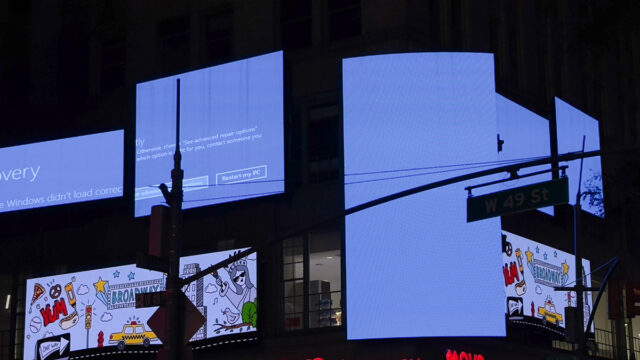5 Marketing Lessons From the ‘It Ends With Us’ PR Saga
With C-suite leaders from iconic brands keynoting sessions, leading workshops and attending networking events, Brandweek is the place to be for marketing innovation and problem-solving. Register to attend September 23–26 in Phoenix, Arizona.
As in many break rooms around the world, the film It Ends With Us has taken my team of multi-generational, diverse, and wickedly smart staffers down a rabbit hole of questions, comments and strong responses.
My 16-year-old daughter’s rave review of the film eventually brought me to the TikTok storytimes and Instagram detectives sleuthing out who among the cast had unfollowed whom on social media, and who was the villain of the story about the story.
First, some background for those who haven’t been following the endless updates:
It Ends With Us, originally a novel written by Colleen Hoover, follows the story of Lily Bloom (played by Blake Lively), a young woman working through a cycle of domestic abuse as she navigates grieving her abusive father while entering a relationship with an abuser (played by actor Justin Baldoni, who also directed the film).
The book gained popularity and began selling in massive numbers in 2021 due to the influence of #BookTok, a niche TikTok community that is passionate about books, creating videos to review and discuss them. Their commentary and social traction have proven to impact book sales and the trajectory of book-to-screen adaptations.
During the promotion of the film, Baldoni was often seen discussing the dangers of domestic violence, promoting the nonprofit No More, an organization that raises awareness about domestic violence and worked with Baldoni on the film. Meanwhile, Lively often talked up the film as a lighthearted rom-com, encouraging fans to “grab their friends and wear florals,” earning her backlash from fans who felt that Lively not mentioning the domestic violence aspect was unethical and in poor taste. At the premiere and on the press tour, Baldoni and Lively can be seen avoiding each other.
Here are the five marketing insights that rose to the top of the chatter in our team meeting this week.
Build a community before you need a community
While not as big of a household name as his co-star Lively or her husband, Ryan Reynolds, Baldoni has spent his career building a community of supporters whose loyalty runs deep.
From his TEDWomen talk to his popular Man Enough podcast, Baldoni has spent his life cultivating community, including through his religion, the Baha’i Faith, whose writings extol the equality of men and women and the unity of mankind. Baldoni has implemented the pillars of his faith into every project, and his intentionality shines through.
When promoting the film, he changed his IG bio to direct followers to resources for survivors of domestic violence, hosted open conversations with professionals in the field, and gave CTAs on how to get help and advocate for victims/survivors. And, because Baldoni had intentionally built a community of supporters, his words were met with open, eager ears—and hearts.
Authenticity remains king
This also lends Baldoni some authenticity in the eyes of the viewer that doesn’t exactly match Lively’s journey to becoming one-half of America’s shiny sweethearts.
Lively and Reynolds have served as Hollywood’s proverbial Homecoming King and Queen for over a decade. We watched their fairytale romance (nevermind the plantation wedding) and their family grow to four kids. But the standard to which we hold our stars has changed.
We are fine-tuned to recognize authenticity, and the tools we have to track that have been upgraded massively in the past decade. Social commentary is judge, jury, and executioner.
In this case, Lively’s authenticity was opaque, at best.
Stay flexible
Planning a rollout of a new project takes months of preparation—sleepless nights building narratives, approving artwork, lining up the ideal press coverage—all of which can be upended by an unexpected kink.
When this happens, it’s more important than ever to embrace flexibility and adapt your messaging to the story going on around you instead of becoming the story yourself.
Competing visions
Several of my staff members called out the clear disconnect between the film content and what Lively wanted for herself, goal-wise. It feels like she was attempting to make it a big cultural moment, especially involving her husband and attempting to tie it to Deadpool 3 a al Barbenheimer, as well as keeping the tone of the tour bubbly and lighthearted when the film and book content are anything but. This left audiences feeling blindsided by what can be an incredibly triggering experience for some.
The ethics behind dramatizing trauma
How responsible is the studio, filmmaker, cast, marketing team, etc. for the portrayal of abuse on screen? Where is the invisible line that tells us to stop and make a clear statement about what is true, what is dangerous, and what the viewer should take away? And how do we do it without completely co-opting any other narrative around the film?
The issue here starts in the source material. Hoover’s books are marketed as romance novels, something that doesn’t sit well with a lot of folks. In It Ends With Us, Lily’s relationship is seen as acceptable. The character excuses red flags and the audience could even perceive some of the book and film as romanticizing the “passionate” gestures her abuser is moved to.
Hoover is no stranger to controversy. Last year, she announced the planned release of a coloring book based on It Ends With Us, then canceled the project following backlash from readers who called out her lack of sensitivity in creating a childlike product based on a dark tale of abuse.
The media is also responsible for reporting leading up to the film, not only to care about what Lively was wearing but also to ask the right questions at press junkets and premieres. Only after the very vocal online backlash are we seeing publications add trigger disclaimers and include the National Domestic Violence Hotline in their pieces covering the film and its associated drama.
As one of my colleagues said: The subject matter of domestic violence should never take a back seat to consumerism and cross-promotion.
https://www.adweek.com/convergent-tv/marketing-lessons-it-ends-with-us-pr-saga/

